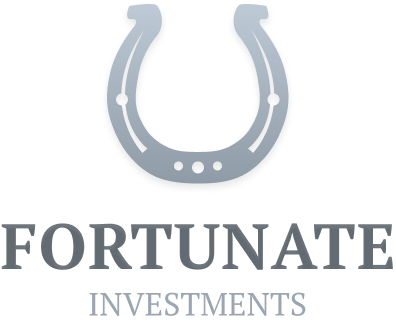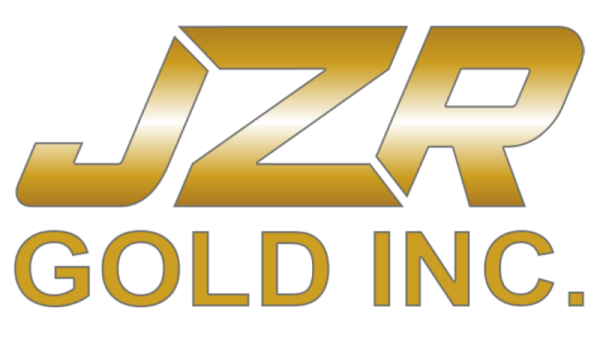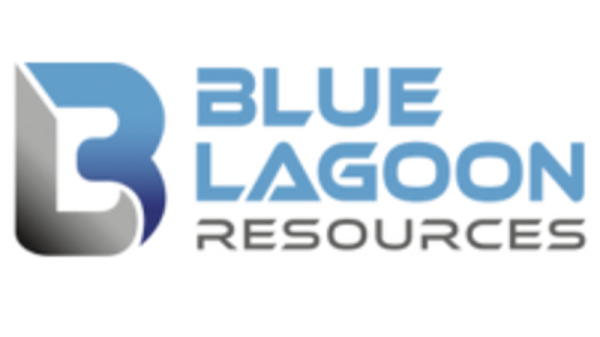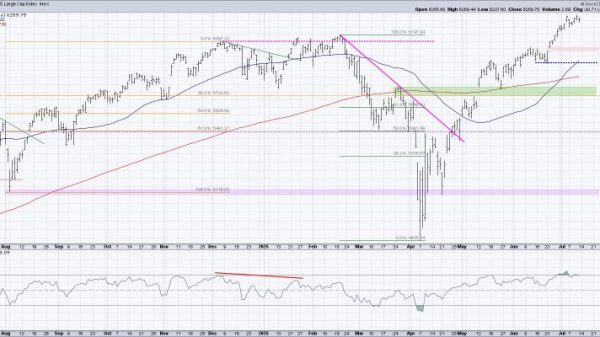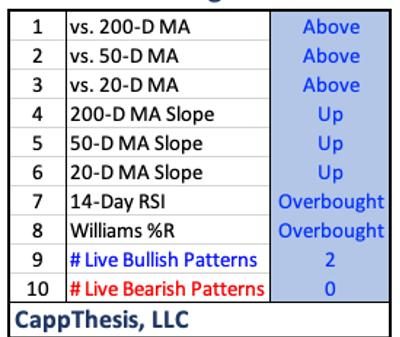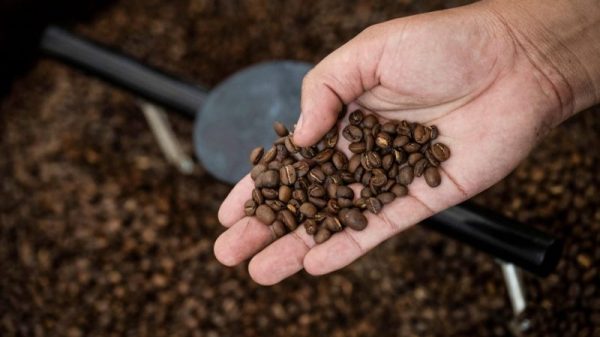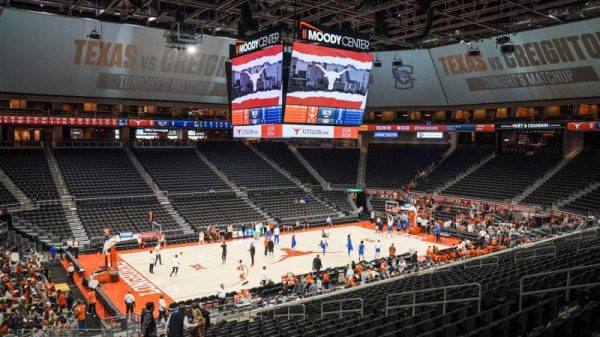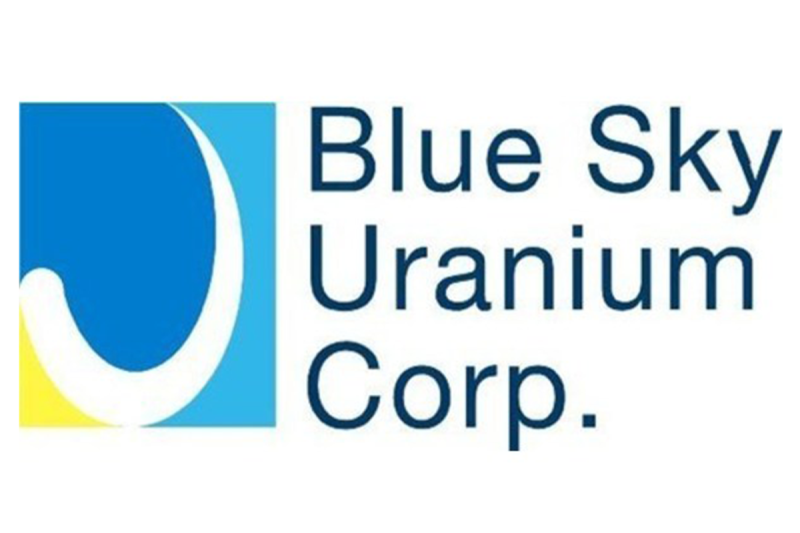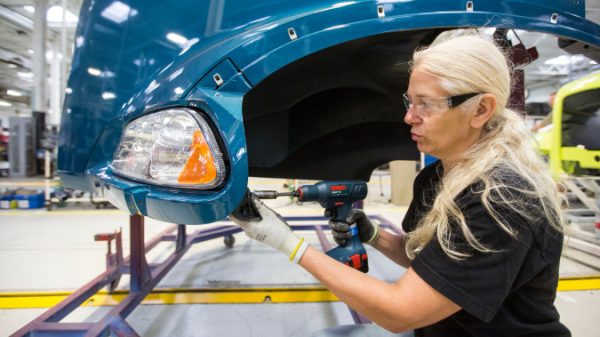TSX Venture Exchange: BSK
Frankfurt Stock Exchange: MAL2
OTCQB Venture Market (OTC): BKUCF
Blue Sky Uranium Corp. (TSXV: BSK) (FSE: MAL2) (OTC: BKUCF) ‘Blue Sky’ or the ‘Company’) is pleased to announce the results of a new Preliminary Economic Assessment(‘ PEA’) for the Ivana Uranium-Vanadium deposit at the Company’s 100% owned Amarillo Grande Project in Rio Negro Province Argentina . The updated PEA incorporates a new mineral resource estimate, in which approximately 80% of the resources are now in the Indicated category. The PEA demonstrates robust economics from a surficial mining operation, entailing 11 years of uranium and vanadium production:
PEA Highlights (All figures in US dollars)
After-tax NPV 8%: $227.7 million After-tax IRR: 38.9% After-tax Payback period: 1.9 years Pre-production Capital Cost: $159.7 million , includes $35.4 million contingency Life of mine (‘LOM’) Sustaining Capital Cost: $27.3 million , includes $5.4 million contingency Average LOM Total Cash Cost net of credits: $23.29 /lb U 3 O 8 Average LOM All-In Sustaining Costs (‘AISC’) net of credits: $24.95 /lb U 3 O 8
PEA Key Assumptions & Inputs
Uranium price: $75 /lb U 3 O 8 Vanadium Price $7.5 /lb V 2 O 5 Years of Construction: 2 Years of Production: 11 Strip Ratio: 1.5:1 (waste/ore) Dilution: 3% Average Mining rate (waste + mill feed): 5.10 Mtpa Processing throughput: 2.17 Mtpa Process Plant Recoveries (Net), Uranium: 84.6% Process Plant Recoveries (Net), Vanadium: 52.5% Average Annual Production (LOM): 1.5 Mlbs/y U 3 O 8 LOM uranium production: 16.5 Mlbs U 3 O 8
‘ This PEA reaffirms that the Ivana deposit is a leading low-cost uranium-vanadium project. We believe that this resurgent uranium market has a strong long-term outlook and we are therefore preparing to complete a prefeasibility study for Ivana as soon as possible, ‘ stated Nikolaos Cacos , Blue Sky President & CEO. ‘ We will also continue our on-going exploration work to discover and delineate new uranium and vanadium resources throughout the remaining highly prospective district-scale Amarillo Grande project.’
Additional detailed processing studies are underway to further de-risk and enhance the economics for development of the Ivana deposit. This technical work will be incorporated into the program to support a prefeasibility study (‘PFS’), which the Company is preparing to commence in the coming months.
PEA Summary
A summary of key physical parameters and costs for the PEA are presented in Table 1 below. All figures are in US dollars. The Mineral Resource estimate included in the PEA is reported according to the classification criteria set out in the Canadian Institute of Mining, Metallurgy, and Petroleum Definition Standards for Mineral Resources and Reserves (‘CIM Definition Standards’).
Readers are cautioned that the PEA is preliminary in nature and is intended to provide an initial assessment of the project’s economic potential and development options. The PEA mine schedule and economic assessment includes numerous assumptions and is based on both Indicated and Inferred mineral resources. Inferred resources are considered too speculative geologically to have the economic considerations applied to them that would enable them to be categorized as mineral reserves, and there is no certainty that the PEA results will be realized. Mineral resources are not mineral reserves and do not have demonstrated economic viability. Additional exploration will be required to potentially upgrade the classification of the inferred mineral resources to be considered in future advanced studies.
Table 1. PEA Summary Parameters
Unit
Physical Parameters
Total tonnes feed prep processed (LOM)
Mt
23.5
Head Grade (U 3 O 8 )
%
0.038 %
Head Grade (V 2 O 5 )
%
0.019 %
Annual Plant throughput
tpa
2,170,000
Recovery – Uranium (net)
%
84.6 %
Recovery – Vanadium (net)
%
52.5 %
Mine Life (Production)
years
11
Total Uranium (U 3 O 8 ) produced
Mlbs
16.5
Total Vanadium (V 2 O 5 ) produced
Mlbs
5.2
Average Annual U 3 O 8 production
Mlbs/yr
1.50
Operating Cost Parameters
Mining Cost (LOM avg)
$/t feed
$4.97
Processing Cost (LOM avg)
$/t feed
$8.52
Waste & Water Management
$/t feed
$0.09
G&A Cost (LOM avg)
$/t feed
$1.92
Total Operating Cost
$/t feed
$15.50
Pre-Production Capital Costs
Mine
$M
$18.79
Process Plant
$M
$96.25
Waste & Water Management
$M
$5.44
Other Infrastructure
$M
$3.83
Contingency
$M
$35.41
Total Pre-Development Capital
$M
$159.72
Sustaining Capital (LOM)
$M
$27.29
Total Capital (LOM)
$M
$187.01
Cost Summary
LOM U3O8 cost (net of V 2 O 5 credits)
$/lb
$23.29
LOM U3O8 cost (net of V 2 O 5 credits) with AISC
$/lb
$24.95
Supporting information for the Mineral Resource estimate and the PEA will be detailed in an independent technical report prepared in accordance with National Instrument 43-101 Standards of Disclosure for Mineral Projects (‘NI 43-101’) which will be filed on SEDAR+ under the Company’s profile within 45 days of the date of this news release.
Mineral Resource Estimate
The effective date of the Mineral Resource estimate is October 14, 2023 . This updated resource estimate includes data from an additional 350 reverse circulation (‘RC’) drill holes (3,346 metres) completed up to March of 2022. The Mineral Resource estimate is presented in Table 2.
The Indicated and Inferred mineral resource estimation for the Ivana Project is summarized in Table 2. The base case cut-off grade of 100 ppm U. The addition of 350 RC drill holes decreased the drill hole spacing and 80% of the estimate is now classed as indicated mineral resources based on 2 holes within 100 m of a block. As far as the QPs are aware, there are no issues related to environmental, permitting, legal, title, taxation, sociopolitical or marketing which could materially impact the mineral resource,
Table 2. Estimate of Mineral Resource reported at 100 ppm Uranium Cut-off
Zone
Class
Tonnes
(Mt)
Average Grade
Contained Metal
U (ppm)
U 3 0 8 (%)
V (ppm)
V 2 O 5 (%)
U 3 0 8 (Mlb)
V 2 O 5 (Mlb)
Upper
Indicated
2.0
122
0.014
110
0.020
0.6
0.9
Lower
Indicated
17.6
358
0.042
104
0.019
16.4
7.2
Total
Indicated
19.7
333
0.039
105
0.019
17.0
8.1
Upper
Inferred
1.4
167
0.020
170
0.030
0.6
0.9
Lower
Inferred
4.2
293
0.035
90
0.016
3.2
1.5
Total
Inferred
5.6
262
0.031
109
0.019
3.8
2.4
Notes to Table 1:
The effective date of the Mineral Resource is October 14, 2023. The QPs for the Mineral Resource estimate are Susan Lomas, P.Geo. of Lions Gate Geological Consulting (LGGC) and Dr. Bruce Davis FAusIMM. CIM Definition Standards were used for Mineral Resource classification and in accordance with CIM MRMR Best Practice Guidelines. Mineral Resources are not Mineral Reserves and do not have demonstrated economic viability. Extreme High-grade samples were capped to lower grades (Upper U 1000 ppm, V 400 ppm, Lower U 3000 ppm, V 1000 ppm) and then restricted using an outlier strategy where Upper composites were limited to U 400 ppm and V 300 ppm over 100 m and Lower composites were limited to U 2000 ppm and V 600 ppm over 100 m Mineral Resources were tabulated within a resource limiting pitshell using $US 75/lb U price, recovery of 84.6% U; open pit mining cost of $1.50/t mineralization mined; processing and G&A cost of $6.30/t processed; pit slope of 32°. Bulk density value of 2.1 g/cm 3 was used for mineralized material. The resource was estimated within distinct zones of elevated uranium concentration occurring within the host sediments. Vanadium is associated with uranium and is estimated within the same zones. There is no indication that Vanadium occurs outside of the elevated uranium zones in the Ivana deposit area in sufficient concentrations to justify developing estimation domains focused on Vanadium.
Mine Plan
The Ivana operation will consist of surface mining operation delivering mill feed to a nearby processing plant or feed stockpiles. The annual mining rate will be approximately 5.1 Mtpa (13,000 tpd) consisting of waste material and mill feed. The average strip ratio is approximately 1.5:1.
Table 3 presents the potentially excavated tonnages. Mill feed may be delivered directly to the process plant or placed into stockpiles for blending purposes.
Table 3. Potentially Extractable Portion of the Mineral Resource
U 3 O 8
V 2 O 5
Waste stripped
34,756 kt
–
–
Strip Ratio
1.48
Mill Feed (diluted)
23,467 kt
0.038 %
0.019 %
Note: Assumes 3% dilution and 3% ore loss. Cut-off grade of 75 ppm U used to define
potentially extractable portion of mineral resource.
The surface mine will be relatively shallow, with a maximum depth of 30 metres. The length of the mine will be approximately 3000 metres with widths ranging from 100 to 400 metres.
Mining will be done with a fleet of two (5 cubic metre) excavators, a front-end loader and seven 31-tonne articulated trucks along with a fleet of support equipment. The materials mined are unconsolidated gravels and sands and are free digging, therefore drilling and blasting will not be required.
Mine waste materials will be used for construction activities on site (e.g., construction of the surface tailings management facility (TMF), inpit cell divider berms, etc.). Waste materials not used in construction will be stockpiled outside of the footprint of the pit. Waste will be managed in the external stockpiles until it is used as in-pit backfill or for reclamation activities.
Processing & Recovery
Mined mill feed may be delivered directly to the processing plant or stockpiled. Stockpiles provide a surge capacity between the mining and processing, and enable blending, to manage the head grade of the process plant feed. Mill feed will then be processed in two stages. The net process recovery is 85% for uranium (derived from 89% leach feed preparation recovery and 95% subsequent alkaline leach circuit recovery); and 53% net for vanadium (derived from 89% leach feed preparation recovery and 59% subsequent alkaline leach circuit recovery). Recoveries were determined through the mineralogical, metallurgical and process engineering test work program completed by The Saskatchewan Research Council (SRC), as detailed in the BSK press release dated February 7 th , 2019.
Feed material will first be processed through the leach feed preparation plant, a semi-mobile screening and scrubbing facility located at the proposed mining site. The leach feed preparation plant will liberate fine material (100 um) and scrub away and recover fine uranium and vanadium mineral particles coating the large particles, into a leach feed slurry. The rejected coarse fraction (approx. 75% of the mill feed mass from which most of the original uranium and vanadium has been stripped) will be dewatered, and either stockpiled on surface (during the first three years of operations) or backhauled by the mine fleet for backfill into containment cells within mined out sections of the pit.
In the second process stage the slurry containing the fine fraction of the mineralized material will be pumped to the leach plant. An alkaline leach circuit (sodium carbonate and bicarbonate) will be used to dissolve uranium and vanadium from the leach feed minerals. No oxidant is required. Subsequently, uranium and vanadium will be separated by selective chemical precipitation, with uranium solids then calcined to U 3 O 8 or UO 3 and vanadium solids calcined to V 2 0 5 .
Tailings slurry from the alkaline leach circuit (approx. 25% of the mill feed mass and from which the majority of uranium and vanadium has been stripped) will initially be pumped to a surface TMF where it will settle and release water. This released water will be reclaimed and pumped to the water treatment circuit in the process plant where it will be further treated, resulting in solids that are pumped back to the TMF with the alkaline leach tailings. The final pH adjusted water will be returned to the process water tank for reuse. The TMF will be used for tailings management for the first three years of mill production.
The fine tailings will be pumped into containment cells in mined out sections of the pit after the surface TMF reaches design capacity (approximately Year 4 of mill production), for co-disposal with mine waste rock and coarse rejects. Long term storage of all waste material from mining operations will comply with all local and international regulations and requirements.
Infrastructure
The Ivana operation will take advantage of local infrastructure whenever possible. Employees will reside in local communities, most likely the town of Valcheta, approximately 25 km from the mine site. Grid power will be accessible to the project via the construction of a 30 km powerline. For the PEA it is assumed that process water will be supplied from on-site pumping wells. Ground water at the mine site is classified as non-potable for humans and animals but suitable for processing use. Future studies will further assess the local water resources.
Other site infrastructure will include maintenance shops, administration offices, a mine dry, diesel fuel storage, and warehouses.
Capital and Operating Costs
The life-of-mine capital and operating costs are summarized in Tables 4 and 5. The costs assume a fully owner-operated project. The closure and reclamation cost are estimated at $26.8 million and includes costs for site remediation and final backfilling of the remaining mine excavation. These costs are commensurate with a PEA level study and have an accuracy of +/- 35%.
Table 4. Capital Cost Summary
Area
Units
Pre-
Production
Sustaining
(LOM)
Total LOM
Mine
$M
18.8
11.3
30.1
Process Plant
$M
96.3
1.3
97.5
Waste & Water Management
$M
5.4
8.2
13.7
Other Infrastructure
$M
3.8
1.1
4.9
Contingency
$M
35.4
5.4
40.8
Total Capital
$M
159.7
27.3
187.0
Note: cost accuracy is commensurate with a PEA level study, with +/- 35% accuracy .
Table 5. Operating Cost Summary
Area
Units
Unit
Cost
Total
LOM
Mining Cost, incl coarse reject backhauling
$/t mat’l
2.09
116.6
Mining Cost, incl coarse rejects
$/t feed
4.97
116.6
Processing Cost
$/t feed
8.52
199.9
Waste & Water Management
$/t feed
0.09
2.2
G&A
$/t feed
1.92
45.0
Total Operating Cost
$/t feed
15.50
363.7
Project Economics and Sensitivities
The economic results of the PEA are summarized in Table 6 on both a before-tax and after-tax basis. For the PEA Base Case a long-term uranium price of $75 /lb U 3 O 8 and a vanadium price of $7.50 /lb V 2 O 5 were used. Sensitivity to various uranium prices are shown in Table 6 while the vanadium price is kept fixed.
Uranium provides approximately 97% of the project’s revenue stream at the base case prices.
Table 6. Economics and Sensitivity
Uranium Price Sensitivity
Spot
Price – U 3 O 8
$/lb
$65.00
$75.00
$85.00
$105.00
Price – V 2 O 5
$/lb
$7.50
$7.50
$7.50
$7.50
Pre-Tax
NPV (0%)
$M
$ 481.3
$637.2
$ 793.1
$1,105.0
NPV (8%)
$M
$272.8
$371.8
$470.7
$ 668.7
IRR
%
41.4 %
50.4 %
58.8 %
74.2 %
After-Tax
NPV (0%)
$M
$304.9
$405.1
$ 505.2
$705.4
NPV (8%)
$M
$163.6
$227.7
$ 291.2
$ 418.3
IRR
%
31.7 %
38.9 %
45.3 %
57.0 %
Payback
years
2.3
1.9
1.7
1.3
Opportunities
Infill drilling at the Ivana deposit is expected to upgrade the mineral resource from the Inferred and indicated categories. It is estimated that an infill RC drilling program of approximately 3,000m in 180 holes will be required in order to further upgrade resources within the pit shell zone.
There is also potential to expand mine feed at Ivana, particularly to the west, where recent infill drilling returned low-uranium – rich-vanadium resources that may be potentially considered for mine-life extension during high-price scenario (see Blue Sky news release dated September 8, 2022 ). Furthermore, there is excellent exploration potential in the 30-40km surrounding areas of the Ivana deposit for considering a potential cluster of deposit with a central facility, and elsewhere on the Amarillo Grande Project concessions.
Additional improvements to the project economics are expected as more detailed engineering studies are undertaken and optimization studies are completed.
Future work on Ivana will include additional infill drilling to upgrade mineral resources, as well as advanced engineering studies that will incorporate the ongoing comprehensive environmental base line study and additional metallurgical and process test works, as well as mine design optimization, detailed permitting assessment, among other items required for the completion of a PFS.
A bout the Amarillo Grande Project
The Company’s 100% owned Amarillo Grande Uranium-Vanadium Project in Rio Negro Province , Argentina is a new uranium district controlled by Blue Sky. The Project includes several major target areas over a regional trend, with uranium and vanadium mineralization in loosely consolidated sandstones and conglomerates, at or near surface. The area is flat-lying, semi-arid and accessible year-round, with nearby rail, power and port access.
The Ivana deposit is located in the southernmost of three target areas that comprise the Amarillo Grande Uranium-Vanadium project. Mineralization was first identified at Ivana after field follow-up of a 2010 regional high-resolution airborne radiometric and magnetic survey.
The Ivana deposit displays characteristics of both surficial-type and sandstone-type uranium-vanadium deposits. In plan view, the Ivana uranium-vanadium mineralization has a broad C-shaped pattern with some isolated outlying areas of peripheral mineralization. The uranium mineralization at Ivana is comprised of secondary uranium minerals which include carnotite, a coffinite-like mineral that has been called β-coffinite (beta-coffinite), as well as lesser tyuyamunite, leibigite, and an unidentified uranium-bearing mineral species.
Mineralization occurs within 25 m of surface in two stacked zones. The upper zone is comprised of predominantly carnotite mineralization, and the lower zone contains a mixture of mainly carnotite and β-coffinite mineralization. The two zones occur together through most of the deposit but there are localized areas where only one zone is present. The upper zone averages 2.7 m in thickness, with a maximum of 10 m , while the lower zone has a maximum of 20 m and has an average thickness of 6 m .
The Amarillo Grande project is believed to have district-scale potential for discovery of similar styles of mineralization.
QA/QC
The resource estimation was based on 838 RC drill holes, representing 10,968 metres of drilling with one metre samples. The drilling was completed in four phases starting in January 2017 and finishing in March 2022 . Only two holes were inclined; the remainder were vertical. Bedding and mineralized horizons are approximately horizontal so vertical samples are believed to represent true thickness. The QPs reviewed the QAQC program for the drilling samples and found the analytical results are within standard industry limits and the drill samples are appropriate for use in the mineral resource estimation.
Qualified Persons and NI 43-101 Disclosure
The results of the Company’s drilling program were reviewed, verified (including sampling, analytical and test data) and compiled by the Company’s geological staff under the supervision of David Terry, Ph.D., P.Geo. Dr. Terry is a Director of the Company and a Qualified Person (‘QP’) as defined in National Instrument 43-101.
A National Instrument 43-101 (‘NI 43-101’) Technical Report supporting the Mineral Resource Estimate and the Preliminary Economic Assessment will be filed on SEDAR+ within 45 days of this news release.
The Mineral Resource Estimate and associated information in this news release were prepared under the direction of Bruce Davis Ph.D., F.AusIMM, Consultant, and Susan Lomas , P.Geo., of Lions Gate Geological Consulting Inc. Both Dr. Davis and Ms. Lomas are independent Qualified Persons (QP’s) as defined in NI 43-101.
The PEA and associated information in this news release were prepared under the direction of consultant Ken Kuchling , P.Eng., a mining engineer specializing in economic reviews and an independent Qualified Person as defined in NI 43-101.
Additional contributing independent Qualified Persons for the PEA are:
Chuck Edwards, P.Eng. FCIM (metallurgy & processing) Ken Embree, P.Eng., of Knight Piésold Ltd (environmental, waste & water management)
All the QP’s have reviewed and approved the content of this news release.
About Blue Sky Uranium Corp.
Blue Sky Uranium Corp. is a leader in uranium discovery in Argentina . The Company’s objective is to deliver exceptional returns to shareholders by rapidly advancing a portfolio of surficial uranium deposits into low-cost producers, while respecting the environment, the communities, and the cultures in all the areas in which we work. Blue Sky has the exclusive right to properties in two provinces in Argentina . The Company’s flagship Amarillo Grande Project was an in-house discovery of a new district that has the potential to be both a leading domestic supplier of uranium to the growing Argentine market and a new international market supplier. The Company is a member of the Grosso Group, a resource management group that has pioneered exploration in Argentina since 1993.
For additional details on the project and properties, please see the Company’s website: www.blueskyuranium.com
ON BEHALF OF THE BOARD
‘Nikolaos Cacos’
______________________________________
Nikolaos Cacos , President, CEO and Director
Neither TSX Venture Exchange nor its Regulation Services Provider (as that term is defined in policies of the TSX Venture Exchange) accepts responsibility for the adequacy or accuracy of this release.
This news release may contain forward-looking statements including but not limited to comments regarding the timing and content of upcoming work programs, geological interpretations, receipt of property titles, potential mineral recovery processes, etc. Forward-looking statements address future events and conditions and therefore involve inherent risks and uncertainties. Actual results may differ materially from those currently anticipated in such statements. Readers are encouraged to refer to the Company’s public disclosure documents for a more detailed discussion of factors that may impact expected future results. The Company undertakes no obligation to publicly update or revise any forward-looking statements. We advise U.S. investors that the SEC’s mining guidelines strictly prohibit information of this type in documents filed with the SEC. U.S. investors are cautioned that mineral deposits on adjacent properties are not indicative of mineral deposits on our properties.
View original content to download multimedia: https://www.prnewswire.com/news-releases/blue-sky-uranium-announces-a-positive-new-preliminary-economic-assessment-for-the-ivana-uranium-vanadium-deposit-amarillo-grande-project-argentina-302068495.html
SOURCE Blue Sky Uranium Corp.
View original content to download multimedia: http://www.newswire.ca/en/releases/archive/February2024/22/c3892.html
News Provided by Canada Newswire via QuoteMedia
